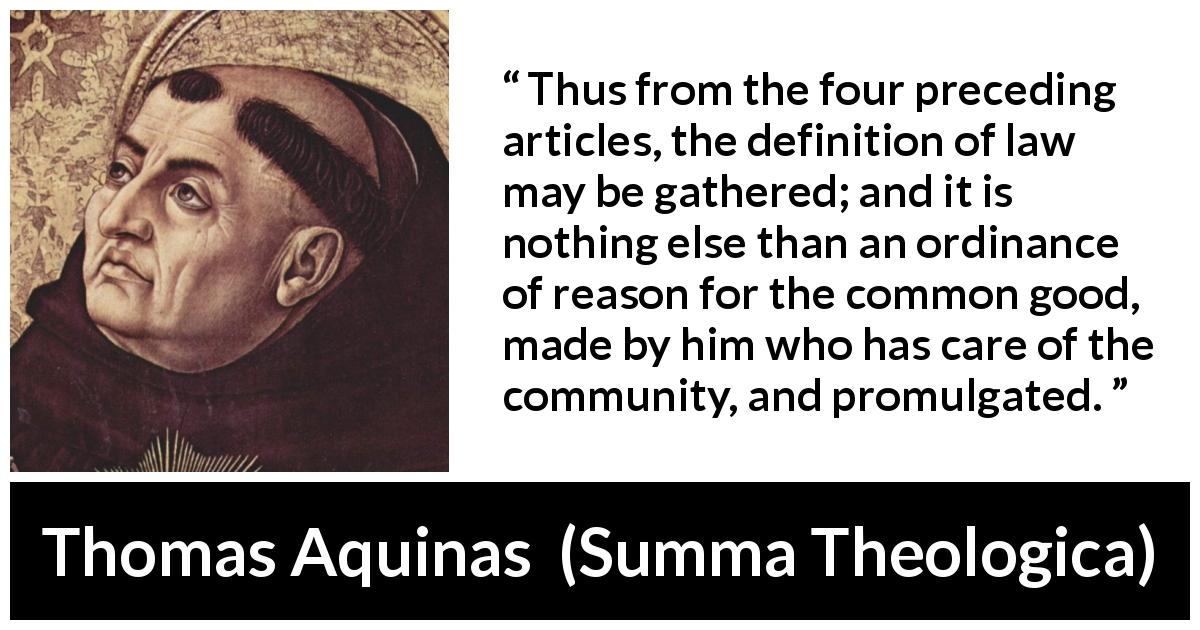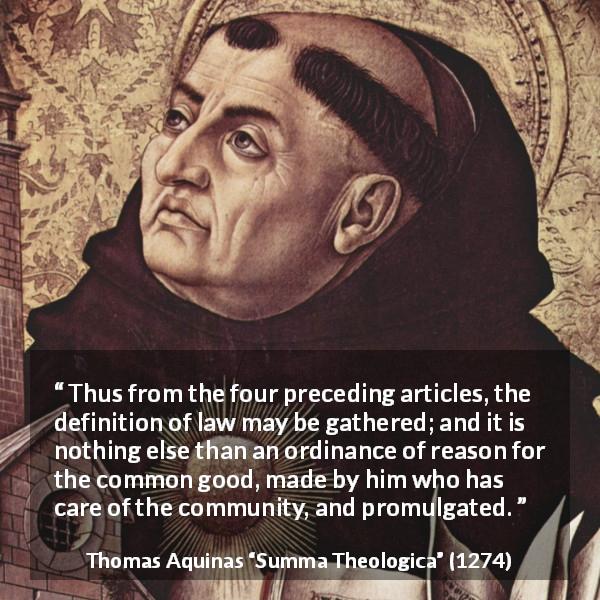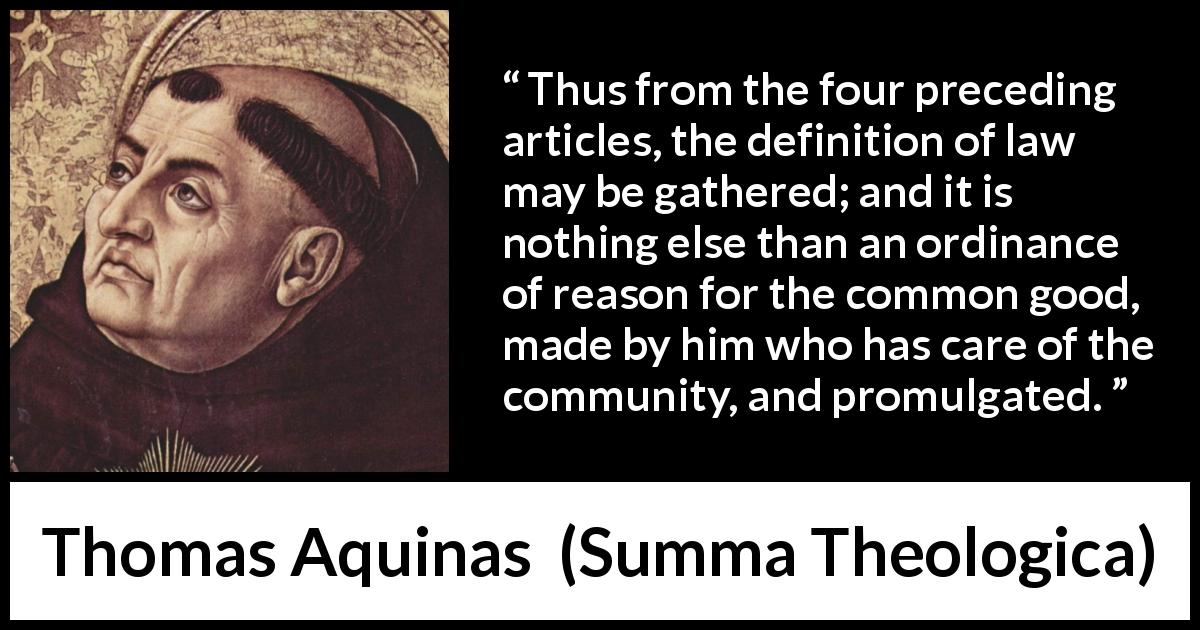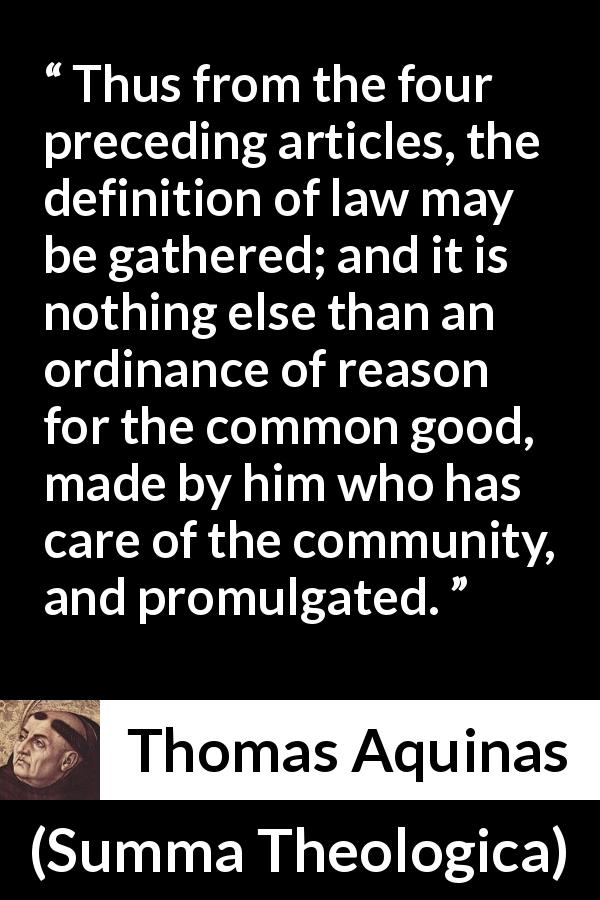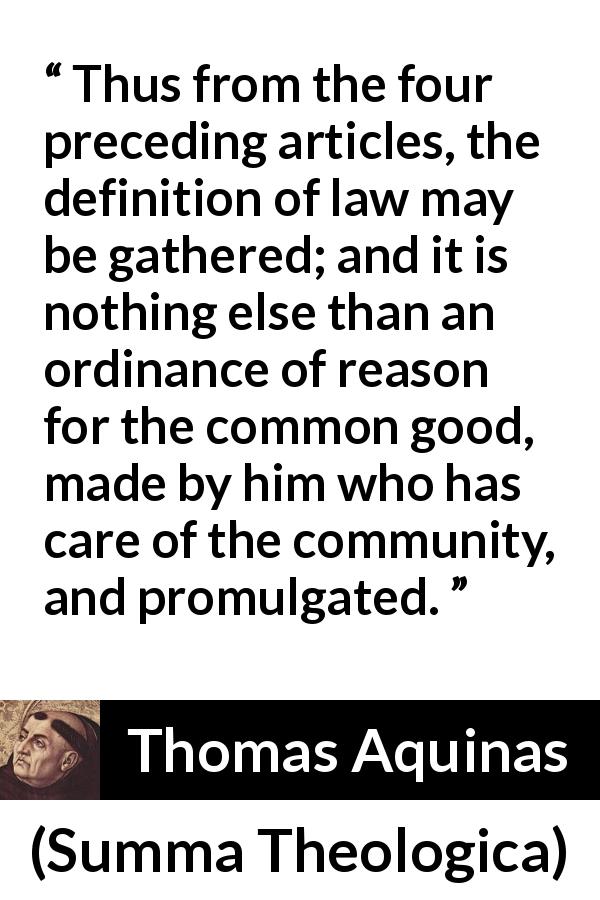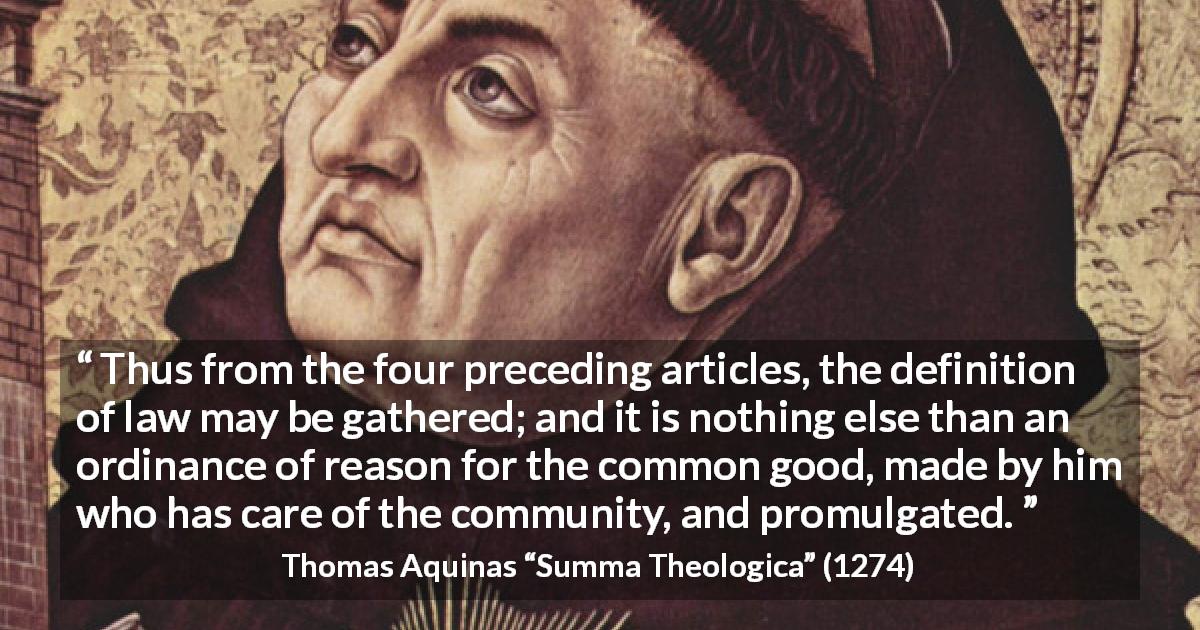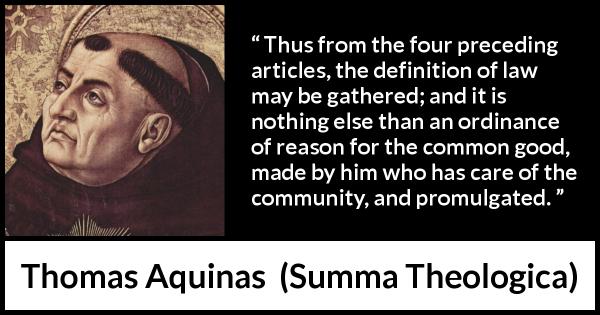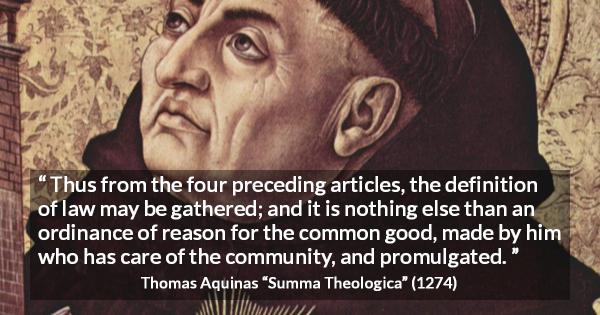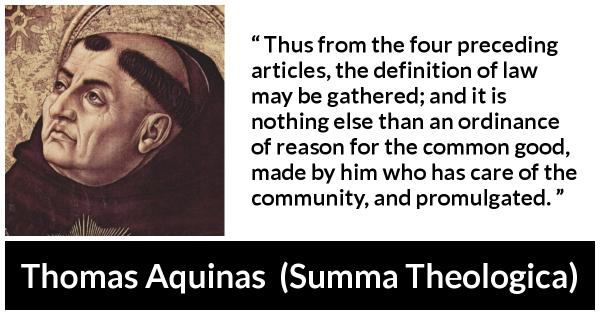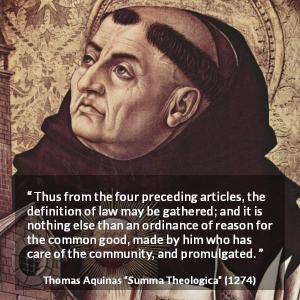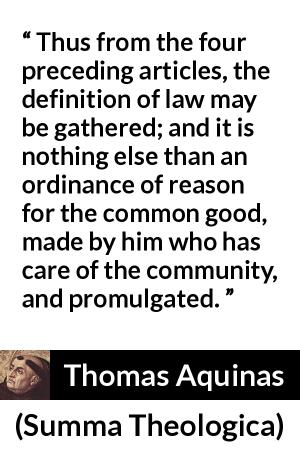“ Thus from the four preceding articles, the definition of law may be gathered; and it is nothing else than an ordinance of reason for the common good, made by him who has care of the community, and promulgated. ”
Thomas Aquinas, Summa Theologica (1274). copy citation
| Author | Thomas Aquinas |
|---|---|
| Source | Summa Theologica |
| Topic | reason care law community |
| Date | 1274 |
| Language | English |
| Reference | |
| Note | Translated by Fathers of the English Dominican Province |
| Weblink | http://www.gutenberg.org/cache/epub/17897/pg17897-images.html |
Context
“Wherefore, in order that a law obtain the binding force which is proper to a law, it must needs be applied to the men who have to be ruled by it. Such application is made by its being notified to them by promulgation. Wherefore promulgation is necessary for the law to obtain its force.
Thus from the four preceding articles, the definition of law may be gathered; and it is nothing else than an ordinance of reason for the common good, made by him who has care of the community, and promulgated. Reply Obj. 1: The natural law is promulgated by the very fact that
God instilled it into man's mind so as to be known by him naturally. Reply Obj. 2: Those who are not present when a law is promulgated, are bound to observe the law, in so far as it is notified or can be notified to them by others, after it has been promulgated.” source
Thus from the four preceding articles, the definition of law may be gathered; and it is nothing else than an ordinance of reason for the common good, made by him who has care of the community, and promulgated. Reply Obj. 1: The natural law is promulgated by the very fact that
God instilled it into man's mind so as to be known by him naturally. Reply Obj. 2: Those who are not present when a law is promulgated, are bound to observe the law, in so far as it is notified or can be notified to them by others, after it has been promulgated.” source
